Get to Know Yaya Through the Stories of Flavours and Norwegian Seafood
Join Urassaya “Yaya” Sperbund in her kitchen where family, culture, and Norwegian ...
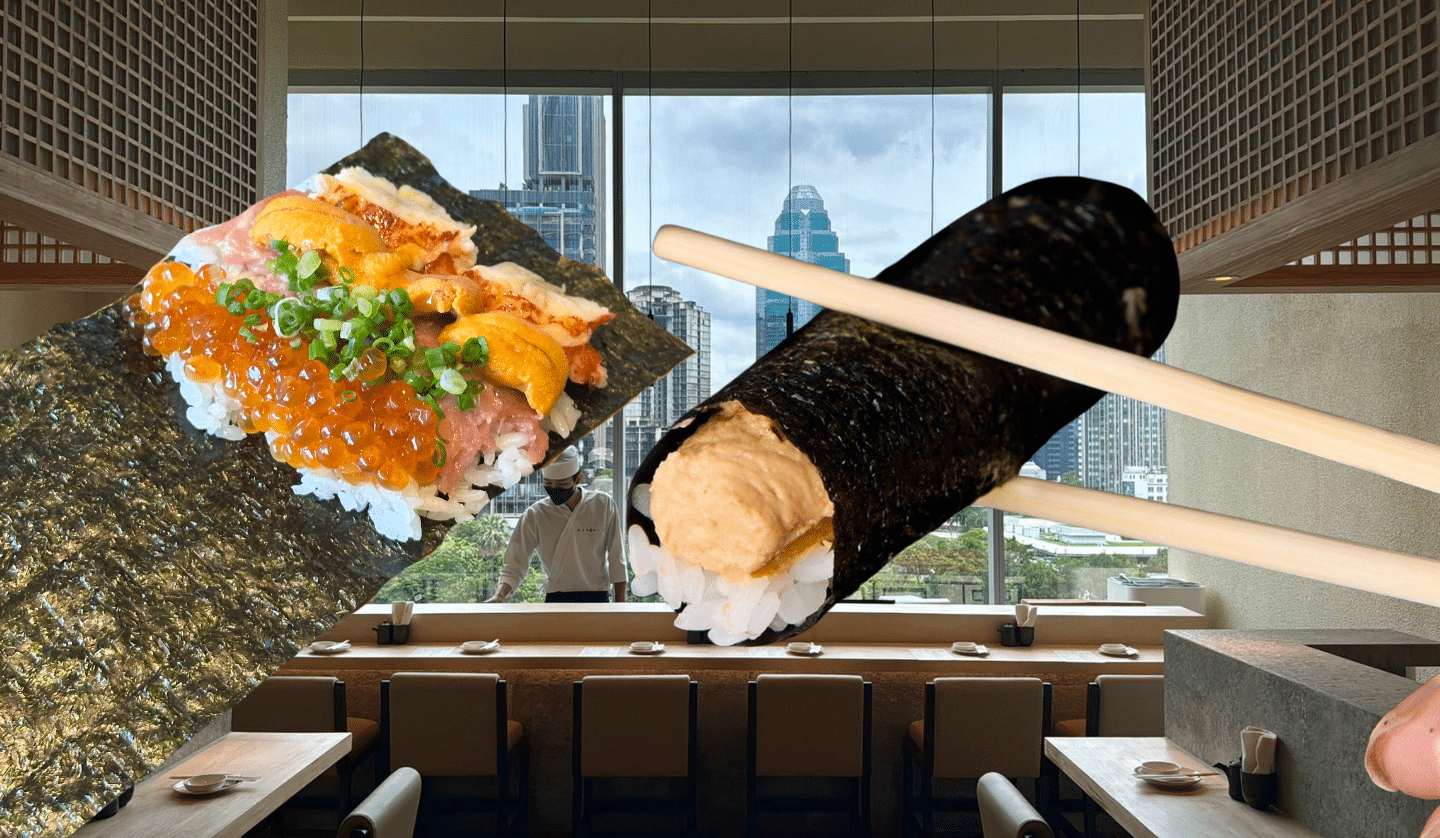
In a city where time is precious and efficiency is everything, Bangkok’s dining scene is leaning into a new form of luxury, one that fits in your hand. Sushi hand rolls are fast becoming a premium sought-after experience, shaped by quality ingredients, minimalist presentation and an omakase-style delivery.
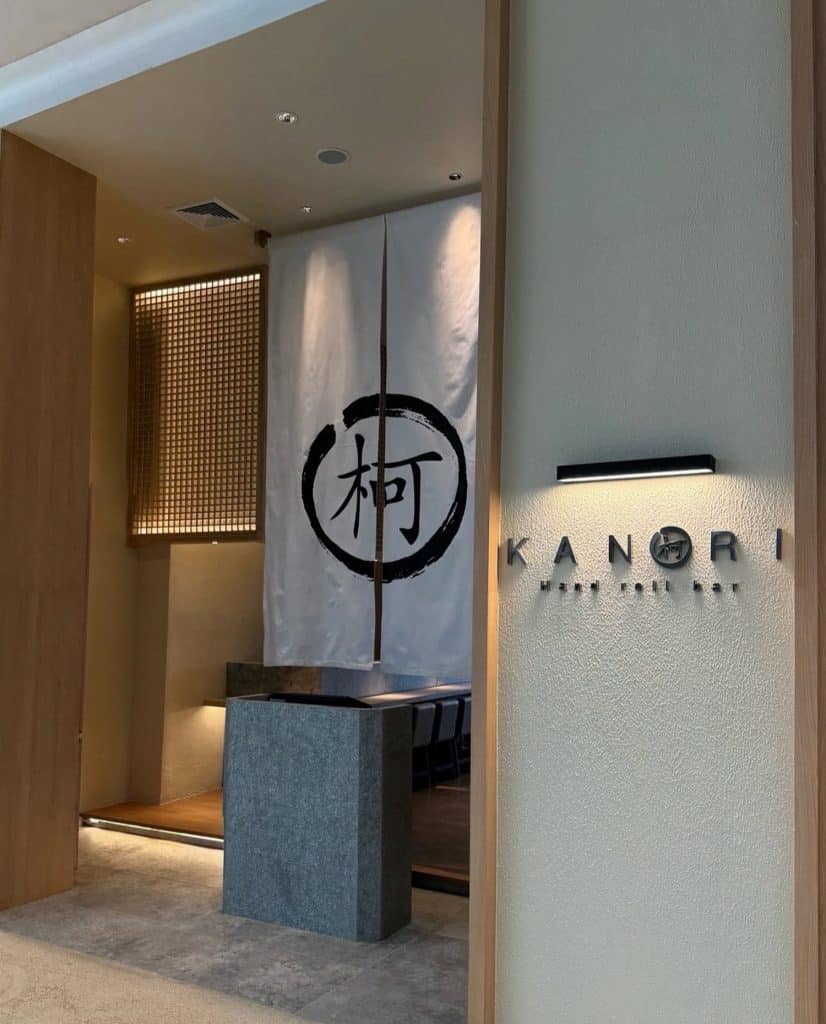
The hand roll might look simple, but its rise in popularity reveals more about what modern diners are looking for. It’s fast but not rushed, premium yet approachable, and delivers a sense of intimacy in the way it’s prepared and served, usually one by one, directly from the chef to the diner.
While its roots lie in Japan, the version of the hand roll we’re seeing more of today, especially in Bangkok, has been shaped by the dining culture of the United States. In Los Angeles during the late 1980s, sushi chef Kazunori Nozawa was known for his strict omakase approach with no substitutions, just fresh high-quality ingredients. His final course was often a simple hand roll made of fish, seasoned rice and seaweed, handed directly to guests to be eaten immediately. It was this hand-to-hand and eat-right-away ritual that made an impression.
Years later in 2014, Nozawa’s team introduced KazuNori, the first dedicated hand roll bar in the US, and the concept quickly gained traction. The appeal was clear: fresh, well-sourced sushi served quickly, without losing the craftsmanship. The format spread to cities including New York, Chicago and San Diego, setting the stage for hand rolls to be appreciated not just as a quick bite, but as a modern expression of dining that brings customers genuine pleasure.
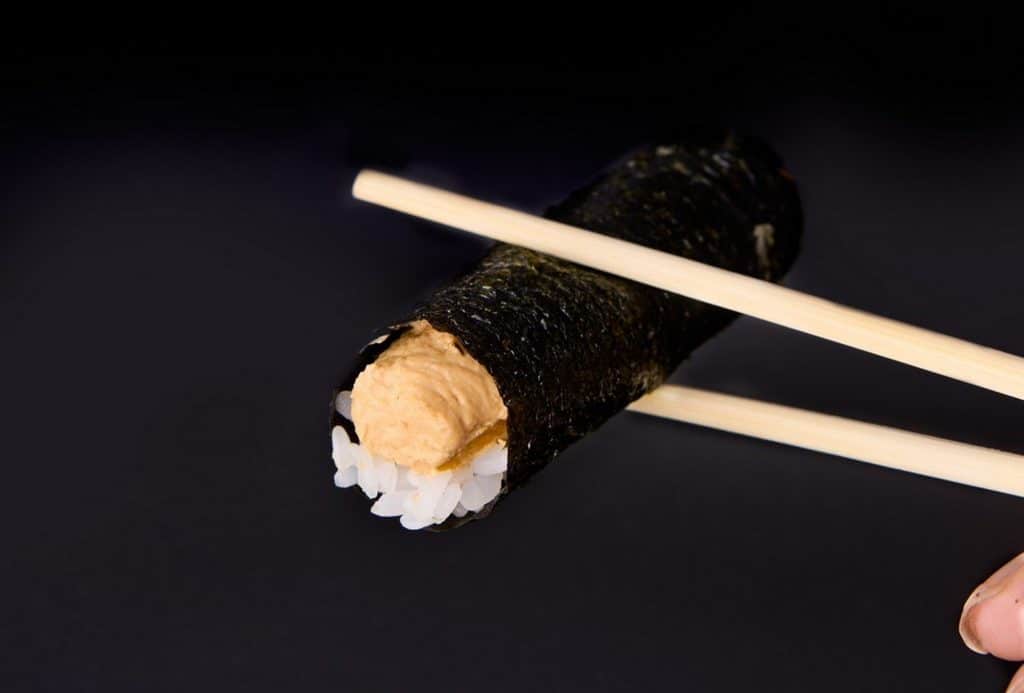
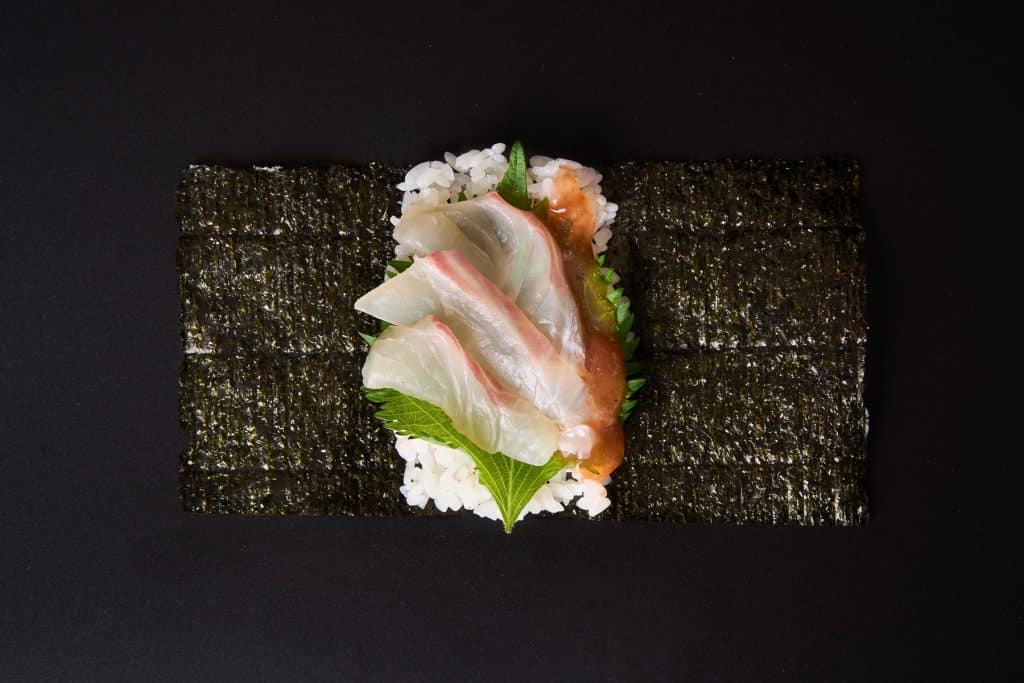
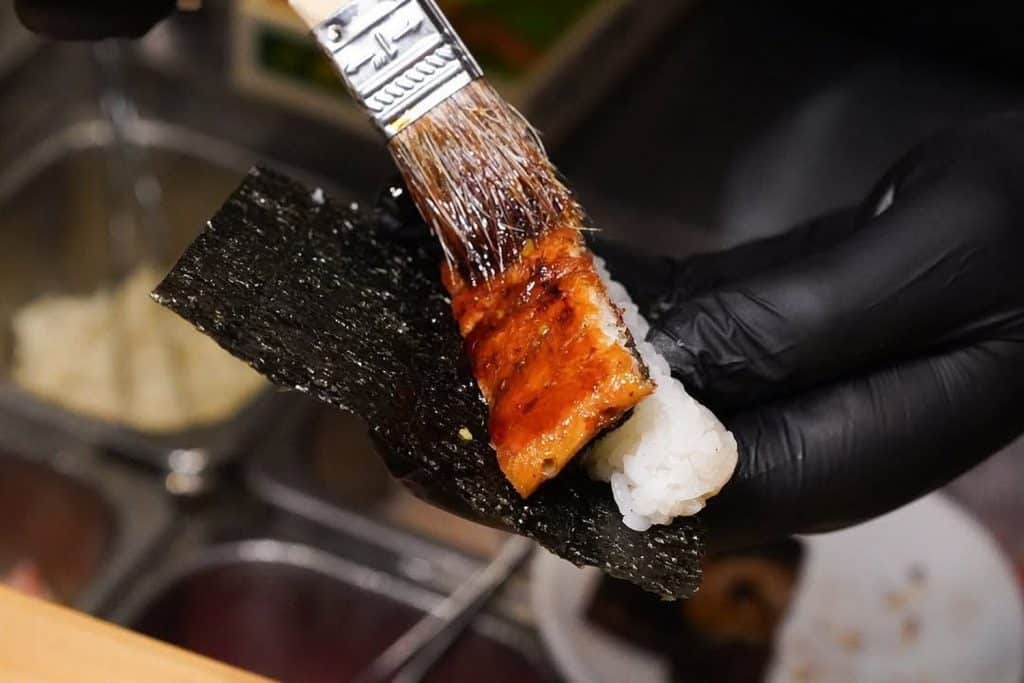
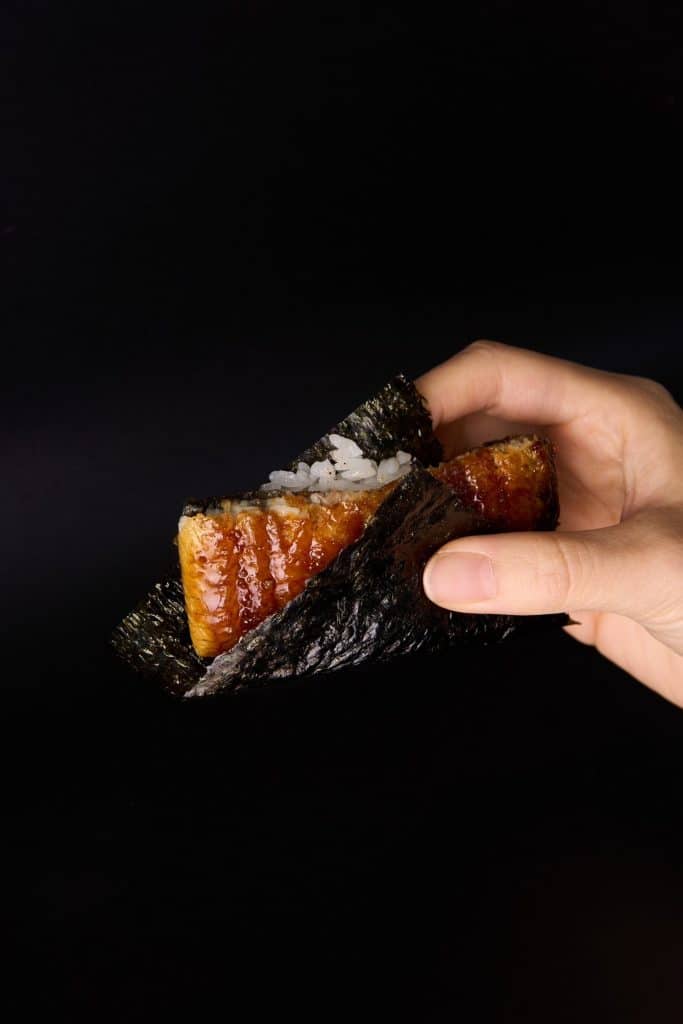
Bangkok, never far behind in food trends, has recently embraced this wave, led in large part by Kanori, Thailand’s first dedicated hand roll bar. Opened in 2023 by three siblings, Benz Panitan, Boat Paniti, and Plane Pavitra Kobkulsuwan, Kanori was born from their shared love of Japanese and a desire to bring something new to the Thai market. The trio, long-time fans of Japanese cuisine, tapped into this growing niche and brought a new kind of sushi dining to the Thai market.

“The origin of the hand roll is LA, then it expanded to New York, so there’s a lot of fusion,”
said Boat Paniti.
“Hand rolls aren’t exactly authentic like Japanese temaki. The idea came when I visited my sister in New York. There was this one restaurant with a long queue, and the taste was amazing, something that really resonated with the Asian palate. That’s when we decided we wanted to bring it back to Thailand, to do something that didn’t exist here yet.”
At Kanori, each hand roll is prepared to order at a counter-style bar, where diners can watch as each roll is assembled and passed directly to them. The setting is calm and warm, with clean lines and natural materials lending a subtle nod to Japanese design. The experience echoes the omakase tradition, but focuses solely on hand rolls.
“Hand rolls aren’t exactly new, they’ve been around for some time,”
explained Benz Panitan,
“but Kanori reinterpreted it and reimagined the presentation to make it more engaging. The character of the hand roll is its simplicity and accessibility, easy to eat, quick and affordable. What Kanori brings to the table is elevated ingredients and an omakase-style approach. It’s fast, casual and focused on quality, all at a price point that’s within reach. It’s food for everyone, from toddlers to the elderly. You don’t need a special occasion to enjoy it.”
Now with four locations across Bangkok at Sukhumvit 49, EmQuartier, Central Embassy, and the latest at ICONSIAM, Kanori is a growing brand that captures a new style of urban luxury.
Their most recent launch, Premium Five Set, is a showcase of this ethos: starting with Ankimo, the “foie gras of the sea” made into a mousse and wrapped in crisp seaweed; followed by Madai Plum, delicate sea bream paired with plum sauce and shiso; then Kanori Roll, a signature layering lobster, uni, negitoro (minced fatty tuna with spring onion) and salmon roe. Next comes Awabi, made with abalone and finished with a rich reduction of its own liver, and the final bite, Unagi, a freshwater eel grilled until the skin crisps and then glazed with a house-made sauce.
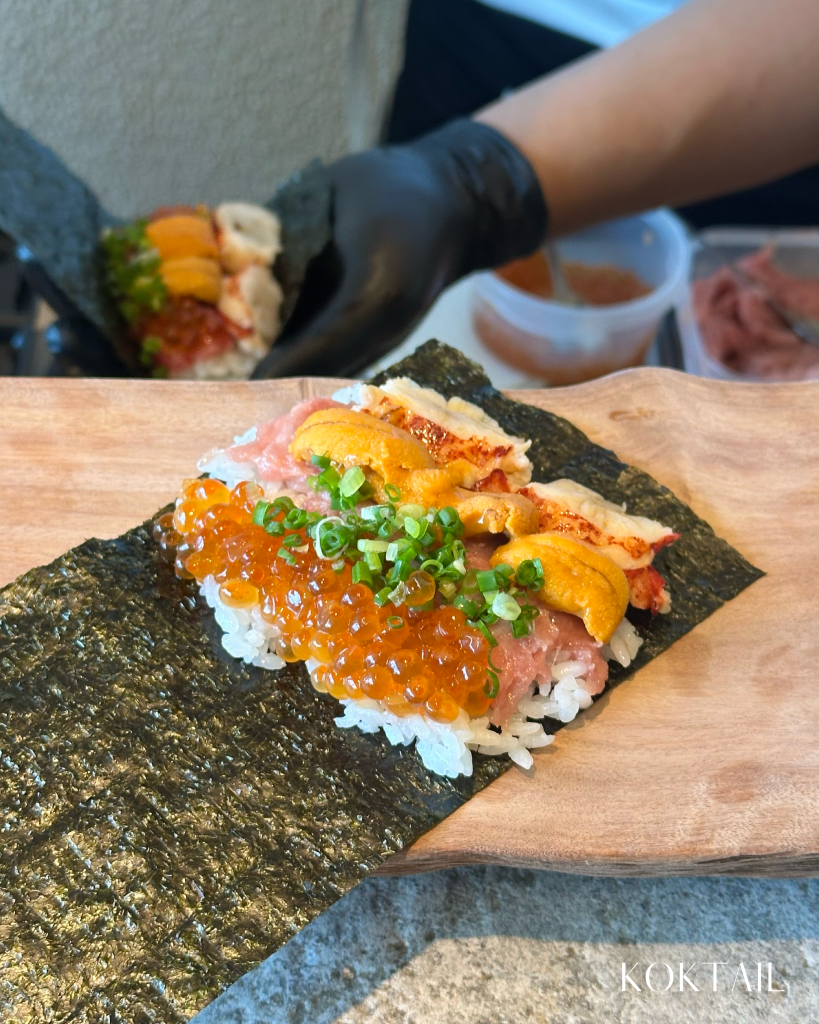
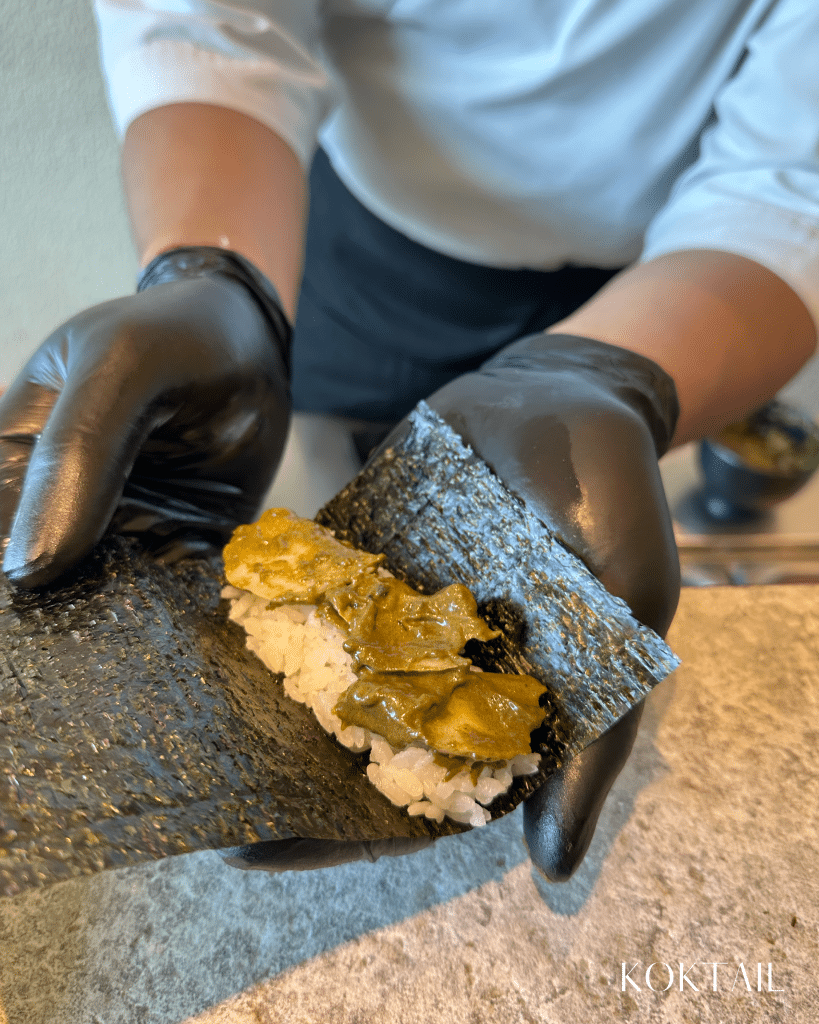
This new wave of dining reflects a shift in how people value their time, their meals and their experiences. Diners today want experiences that are efficient, elevated and emotionally resonant. The new luxury is not bound by formality or exclusivity. It’s found in attention to detail, speed without sacrifice, and the intimacy of something made just for you. So, when we talk about luxury in Bangkok’s dining scene now, perhaps it’s no longer about courses stretching into the evening or restaurants with long waitlists. Maybe it’s about sitting at a counter, watching a chef’s hands at work, and being handed something fresh, warm and thoughtful, just for you.

So, is hand roll the new luxury?
In Bangkok, a city that’s constantly reinventing the rules of dining, the answer is yes, and it’s served in the palm of your hand.
Join Urassaya “Yaya” Sperbund in her kitchen where family, culture, and Norwegian ...
Saturdays are already made for Salmon, now there's even more reason to ...
What’s your #MySalmonStory? Join Thailand’s Tastiest Movement with Seafood from Norway There’s ...
VERY THAI: In this regular column, author Philip Cornwel-Smith explores popular culture and topics ...
Wandering around the globe, try out the signature tastes of cultures across ...
Twisted punishments and psychological horror return in Girl from Nowhere: The Reset, starring ...
Wee use cookies to deliver your best experience on our website. By using our website, you consent to our cookies in accordance with our cookies policy and privacy policy